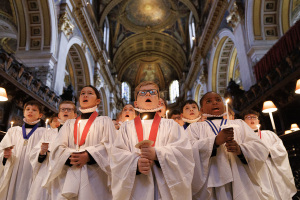What is difference between prayer and intercession?

When we think about prayer over the course of history, we realize mankind has always reached out to God. Regardless of the continent they lived on. Regardless of age or even beliefs, there are historic accounts of people reaching out to God. It's as if God has hardwired us to communicate with Him.
A recent Gallup poll in the United States indicated over 70% of Americans pray on a regular basis. Think a moment of the complexity of billions of people over thousands of years praying to God. Imagine those prayers that have ascended to a holy God. It’s really an incredible concept that God created this communication process of prayer. This is a God who is not only willing but desires, to hear and listen to us at any given time. A special formula is not needed. We don’t have to prostrate or position ourselves in a certain way. All we need is to talk to God and be honest with Him.
When you talk about prayer and intercession, it's easy to believe they are lumped together in one category. People often ask me, “What is the difference between prayer and intercession?” I'd like to make the distinction that both are good. Both are good but they are different. To give the simple answer, prayer is when you come before God with the needs that are on your heart. Of course, we need to bring our needs to God — He expects us to.
Intercession is when you stand between God and someone or something. At Intercessors for America, we stand between God and the people and the problems of the United States. We stand in the gap for politicians and pray for godly leaders. That’s the distinction. We should pray to God, yet at times we need to stand between. Ezekiel 22:30 says, “So I sought for a man among them who would make a wall and stand in the gap before Me on behalf of the land, that I should not destroy it; but I found no one.” Praying to God is imperative. However, will we, when prompted by God, go beyond simple prayer and make a wall, and stand in the gap for our nation and its leaders?
Keys to effective intercession
I believe there are two key aspects of effective intercession. The first one is praying in community. What I mean by that is praying with other like-minded Christians. We have found from the hundreds of thousands of intercessors that we work with on a weekly basis, many of them feel lonely and discouraged. Ecclesiastes 4:9-20 tells us, “Two are better than one, because they have a good reward for their labor. For if they fall, one will lift up his companion.”
To remain encouraged, especially when you are not seeing results, it is best to pray in a community. When one becomes discouraged or feels isolated, another will pick them up and encourage them to press on.
The second key to be successful in our intercessory prayer life is to rely on the promises of God. God has promises throughout Scripture for us. We do not have to wonder what God’s will is for our nation or our leaders. God has made it plain in His Word that he desires godly leadership. When we are fully persuaded of the promise of God, we can pray with confidence — knowing God hears us, and we are declaring His will in the earth. One thing I have noticed the older I get in life is the fewer words I use in prayer. I spend more time in silence before the Lord, listening. I have found that I don’t hear the audible voice of God, but I sense impressions from Him. I feel the Holy Spirit touches my spirit and leads me and guides me in the way I should intercede. He leads me to the right Scriptures and empowers me to intercede effectively. Listening is a big part of intercession. We must hear the heart of God and pray accordingly. Being still before the Lord is imperative. Could it be that the lost art of prayer and intercession has a great deal to do with being still before the Lord? I believe so.
Samuel Adams famously said, “It does not take a majority to prevail ... but rather an irate, tireless minority, keen on setting brushfires of freedom in the minds of men.” And one of the founders of Intercessors for America, Derek Prince, said that history belongs to the intercessors. It may be a minority of people earnestly praying for the nation, but this tireless minority is setting brushfires of freedom and impacting history. Over the past few years, we have witnessed supernatural growth in the number of people who are passionate about praying for this nation. There are hundreds of thousands of individuals and thousands of groups across the nation praying and crying out to God. I am convinced that if God is putting this desire to pray on people’s hearts. He is not done with our nation.
I believe the days ahead will be nothing like the days of the past. In fact, the coming days could be more difficult than anything we have seen in the past. It is critical the Church understands that it is a time for prayer and intercession.
David Kubal is President/CEO of Intercessors for America (IFA), which serves over one million praying Christians every month. David serves on the National Faith Advisory Board and the National Day of Prayer Task Force and is also frequently featured in national news outlets such as Victory Channel, CBN, and Fox News.



























